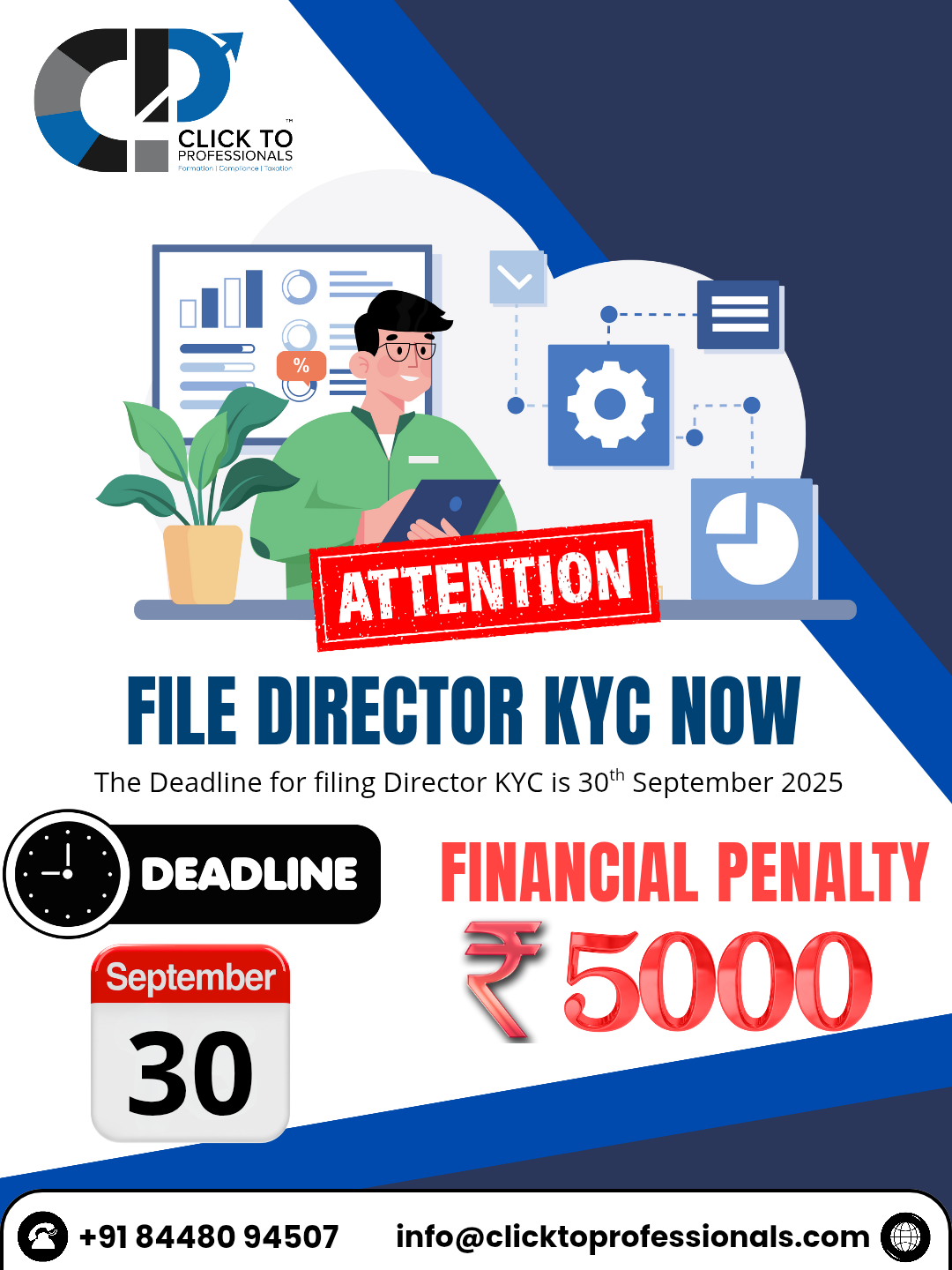
Every individual who holds a directorship in a company or an LLP in India is required to complete a regulatory compliance process called Director KYC (Know Your Customer). This annual process was introduced by the Ministry of Corporate Affairs (MCA) to ensure that the government has an updated and accurate record of all directors in India.
If you’re a director with a Director Identification Number (DIN), you are required to file your KYC details every year using Form DIR-3 KYC.
Let’s break down this process in a simple way.
What is Director KYC?
Director KYC is nothing but the mandatory submission of a director’s personal details to the MCA. A DIN, once allotted, allows you to become or continue as a director; however, since 2018, directors are required to validate these details annually.
The KYC mainly involves providing:
- Mobile number
- Email ID
- Residential address
- Identity proof
This step ensures that the government maintains transparency and prevents misuse of DINs.
Why is it Important?
Filing Director KYC annually is more than just a formality; it plays a big role in strengthening corporate governance. Some key reasons include:
- Ensures transparency – Accurate data helps maintain a clear record of company heads.
- Prevents misuse of DINs – Regular verification blocks fraudulent activities.
- Protects trust – Investors, professionals, and regulators can place confidence in verified company leadership.
- Ensures compliance – Filing is a legal requirement under the Companies Act, and if you miss filing it, you can invite penalties.
Who Needs to File?
Any director who has a DIN allotted on or before 31st March 2025, and whose DIN status is “Approved,” must file Director KYC for the financial year 2024-25. This includes both:
- Directors in companies
- Partners in LLPs holding DINs
In short, everyone holding a DIN has to file Director KYC.
Due Date and Penalties
The deadline for filing DIR-3 KYC for FY 2024-25 is 30th September 2025.
- Filing before this date is free of charge.
- Missing the deadline will lead to the automatic deactivation of DIN.
- To reactivate, a director must pay a penalty of ₹5,000, and until then, cannot sign or act in any official directorial capacity.
Documents Needed for Director KYC
Before starting the filing, keep the following ready:
- PAN Card (mandatory identification)
- Aadhaar Card or Passport (address and identity proof)
- Proof of residence
- Valid and active mobile number and email ID
- Digital signature (required in some cases)
How to File Director KYC
Here’s a quick step-by-step outline:
- Visit the MCA official portal.
- Use DIN to log in and choose either Form DIR-3 KYC (for first-time filing) or DIR-3 KYC Web (for subsequent years, if no details changed).
- Enter personal, mobile, and email details.
- Upload supporting documents.
- Verify details and submit before the due date.
What Happens if You Don’t File?
Non-compliance can cause serious disruptions in your role as a director:
- DIN gets deactivated.
- You cannot legally act as a director or sign company forms.
- A fine of ₹5,000 is imposed for late filing.
- Reputational damage may occur due to non-compliance history.
Conclusion
Director KYC is not just a legal formality; it is your responsibility as a director to keep company records clean and transparent. Filing on time saves you from unnecessary penalties and ensures that your DIN remains active without interruptions.
Since the due date is fixed every year on 30th September, it’s wise to mark your calendar and complete your KYC well in advance. Staying compliant will keep both you and your company on the safe side of corporate governance.
Contact Us:
Call us at +91 84480 94507 or email us at info@clicktoprofessionals.com for any queries.
Choose Click To Professional – Your Partner in Business Success.
Hot Right Now: Boost Your Finances with Expert Online Chartered Accountant Advice in 2025


